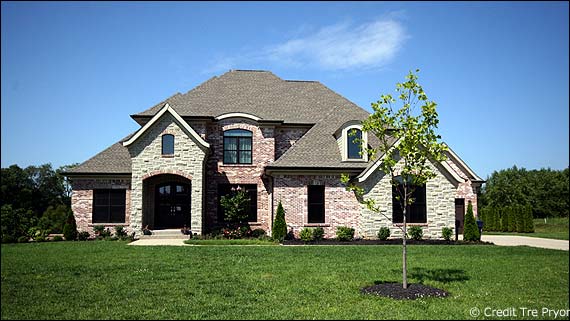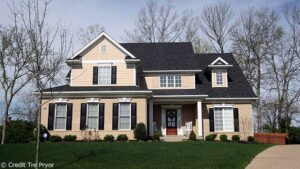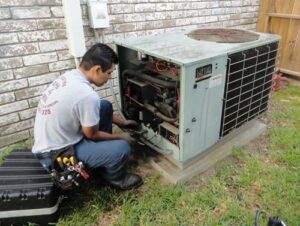The term energy efficiency is more than just a trend in the modern world. It is considered the key component of sustainable living, and it may have a significant impact on both the long-term comfort and energy expenses of your new home. Energy efficiency in new construction homes is a wise financial decision and also environmentally friendly.

Hence, in this article, let us discuss the five significant elements homeowners must consider when looking for their new energy-efficient homes. These rank high on the list of today’s energy-efficient home trends.
1. Installed HVAC Systems
A well-maintained HVAC system lowers energy use and helps to maintain comfortable indoor air quality. The HVAC system of a new residence should always be checked and inquired about before finalizing. Look for a house with an HVAC system with high efficiency and an excellent heating system.
New digital thermostats are often programmable. This enables homeowners to adjust the heating and cooling according to their needs and reduce waste when away on a trip.
2. Insulation and Thermal Envelope
A well-insulated interior defines an energy-efficient home. This is why examining the thermal insulation and insulation quality of a new house is crucial. Insulation of cellulose and spray foam offers superior coverage and stops heat loss. Checking with the R-value is also essential as it shows how resistant the insulation is to heat flow as the value decreases with increasing insulation quality.
Inspect the thermal insulation in your house for any holes or fractures. They can release chilly air and take out heat from the house. An insulated house, however, minimizes the high demand for heating and cooling as it generally maintains a pleasant interior air quality.
3. Energy Efficient Appliances and Lightning
At the top of energy-efficient home upgrades for ease of installation are appliances. These have the potential to lower the energy consumption of a newly constructed house drastically. Before buying any house, individuals must check the ENERGY STAR rating of these appliances they claim to be as energy-efficient as possible without sacrificing functionality.
Another easy-to-change update comes by way of the home’s lighting. LED lighting, which uses less energy than incandescent bulbs, is a common feature of an energy-efficient house and will almost always save the homeowner money in the long run.
4. Renewable Energy Integration
Renewable energy sources, including solar panels, are being used more widely in newly constructed homes to produce electricity and lower the dependability on electrical grids. In addition to lowering energy costs, solar energy promotes sustainability and a nature-friendly approach. When thinking about energy efficiency, the orientation and architecture of the house must also be considered to be on the safer side.
For instance, a house with a south-facing solar panel and an unobstructed view can optimize the effectiveness of a solar panel. To further increase energy efficiency, some homes may include technologies like geothermal heating, cooling systems, and windmills. To make an informed choice, homeowners can also book a direct consultation with a real estate firm or visit their website.
5. Energy Efficient Doors and Windows
In newly constructed residences, windows and doors are the most common sources of energy loss. Individuals should always look for double or triple glazing on windows and sealed doors when assessing the entire property. Heat transmission is decreased, and insulation is improved with double glazing. Installing low emissivity coatings that help to keep the interior temperature stable also allows homeowners to regulate the amount of UV rays that can enter their houses.
It should be noted that the location of your windows and doors can significantly influence the energy efficiency of a property. For instance, passive solar heating is made possible by windows facing south, which lowers the demand for artificial heating during winter months.
Final Thoughts
To sum up, when considering energy efficiency in new construction homes it is important to focus on each of the key elements mentioned above. Work with reputable real estate agents who can recommend the best builders in your market.
Living in an energy-efficient property not only reduces the cost of energy bills but also helps individuals to maintain an eco-friendly lifestyle.



